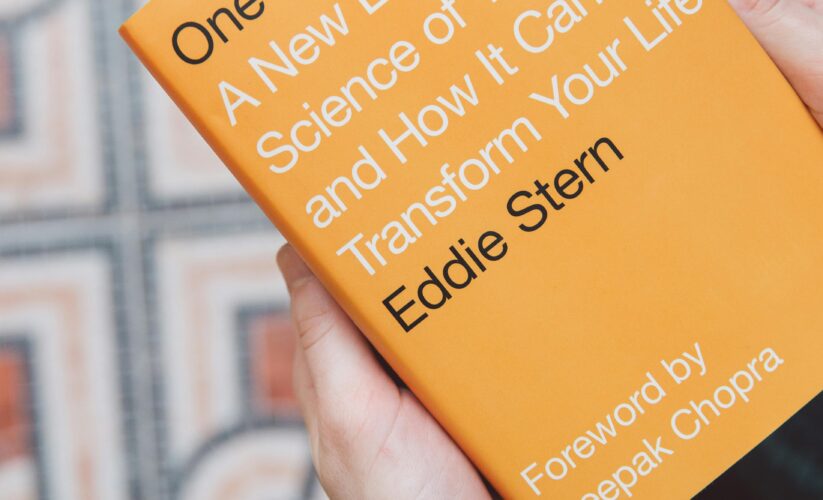
Bestselling 10 Erotic Non-Fiction Books to Explore in 2025 for Mindful Readers
Bestselling 10 Erotic Non-Fiction Books to Explore in 2025 for Mindful Readers
As we step into 2025, the landscape of bestselling erotic non-fiction continues to evolve, offering readers an unparalleled opportunity to explore the depths of sexuality, intimacy, and self-discovery. This genre encompasses a wide array of themes, from erotic memoirs and transformative narratives to practical sex education books. Mindful readers can find invaluable insights into enhancing relationships and enriching personal lives through these engaging texts.
In this article, we will delve into ten groundbreaking titles that capture the essence of erotic literature. These books not only entertain but also educate, cultivating a deeper understanding of human sexuality and relationships. By examining these works, readers will embark on a journey of adult empowerment and sensual storytelling, enriching their understanding of emotional intelligence in intimacy.
Our exploration covers key themes in adult non-fiction, highlighting the importance of sex positivity literature and advocating for an open dialogue about desire and intimacy. Stay tuned as we uncover our top selections that promise not just to inform but also inspire.

Essential Guide to Bestselling Erotic Non-Fiction
Understanding the Genre of Erotic Non-Fiction
Erotic non-fiction occupies a unique space in literature, merging factual narratives with the exploration of personal experiences related to sexuality. It challenges societal norms and prompts discussions about erotic experiences and sexual wellness. By focusing on real stories, these books enhance intimacy exploration and encourage individuals to embrace their desires without shame.
Modern readers are increasingly drawn to erotic narratives that recount personal awakening and growth, making it a vital branch of adult self-improvement. Not only do these stories provide entertainment, but they also serve as educational tools that broaden understanding of sex and emotional intelligence.
The interplay of sex and relationships further highlights the importance of communication and consent. By reading these narratives, individuals can navigate their own relational dynamics with greater confidence and insight.
Top Themes in Bestselling Erotic Non-Fiction
The world of erotic non-fiction encompasses diverse themes ranging from vulnerability in relationships to the exploration of sexuality in literature. Popular themes include personal growth through sexuality and the impact of cultural perspectives on eroticism. These elements resonate with readers seeking a deeper connection to their intimate selves.
Books in this genre often provide guided intimacy and strategies for improved emotional health, encouraging a proactive approach to understanding one’s sexual identity and desires. This trend reflects a broader societal shift towards a more open-minded view of sexuality education and personal development.

Why Mindful Readers Choose Erotic Non-Fiction
Mindful readers are increasingly choosing to delve into erotic literature as a means of exploring their sexuality in a constructive and reflective way. These books provide a rich context for understanding intimate relationship dynamics and enhance personal growth. Whether through true sexual stories or erotic essays, these narratives foster a culture of sex positivity and acceptance.
Moreover, engaging with these texts inspires self-reflection and offers new perspectives on achieving emotional and sexual fulfillment. As readers connect with authors’ voices, they gain insights into their own experiences and desires, ultimately enhancing their relationships and personal connections.
Top 10 Bestselling Erotic Non-Fiction Books to Explore
1. “The Ethical Slut” by Dossie Easton and Janet W. Hardy
This groundbreaking book challenges traditional monogamous ideals, opening the door to polyamorous relationships. It explores how to communicate desires and boundaries without shame, promoting a culture of consent and intimacy.
2. “Come As You Are” by Emily Nagoski
Focusing on the science of sexuality, this book offers insights into understanding sexual response and desire from a female perspective. Nagoski combines research with personal narratives to enhance readers’ sexual well-being.
3. “The Joy of Sex” by Alex Comfort
A classic in the realm of sexual wellness, this guide balances practical advice with erotic artistry, making it both informative and visually appealing. It covers a diverse array of sexual practices, encouraging exploration and discovery.
4. “Mating in Captivity” by Esther Perel
Perel dives deep into the complexities of maintaining desire in long-term relationships. This book offers essential relationship advice for adults who seek to cultivate passion while navigating commitment.
5. “Confessions of a Porn Addict” by Sasha Grey
This memoir not only provides a candid view of the adult film industry, but also discusses broader themes of female empowerment and self-discovery, offering perspectives on sexuality and the media.
6. “Women Who Run with the Wolves” by Clarissa Pinkola Estés
Though often considered a feminist classic, this book delves into the primal aspects of female sexuality. Estés explores myths and stories that illuminate the myriad ways women can reclaim their erotic power.
7. “The New Topping Book” by Dossie Easton and Janet W. Hardy
For those exploring BDSM dynamics, this book provides practical advice on establishing trust and communication in power-exchange relationships, ultimately fostering deeper connections.
8. “The Art of Seduction” by Robert Greene
An insightful examination of seduction through history, this book offers readers tools and strategies for creating emotional connections and enhancing their intimate lives.
9. “Cunt: A Declaration of Independence” by Inga Muscio
This unique blend of memoir and cultural critique examines the reclaiming of female sexuality. Muscio advocates for self-empowerment and understanding of one’s erotic self.
10. “The Body Keeps the Score” by Bessel van der Kolk
While focused on trauma and healing, van der Kolk’s work emphasizes the importance of bodily awareness in the context of intimate relationships, underscoring the connection between mind and body in understanding eroticism.
Embracing the Journey of Erotic Self-Discovery
Transformative Power of Erotic Literature
Reading erotic essays and [sensual poetry presents an opportunity for personal exploration. The stories and themes found within these pages can facilitate profound self-discovery, encouraging readers to confront their own desires and boundaries.
Through the lens of sexuality in literature, readers also gain a valuable perspective on societal views toward sexual expression. Engaging with this literature cultivates a sense of empowerment and freedom to embrace one’s true self.
The Importance of Emotional Connection
Understanding emotional health in sexuality is paramount for fostering meaningful relationships. Literature that emphasizes vulnerability, consent, and intimacy can enhance readers’ capacity to connect with others. This emotional journey allows individuals to build satisfying partnerships based on mutual trust and respect.
Navigating the Landscape of Sexual Narratives
As readers delve into the rich tapestry of erotic narratives, they discover not only the physical aspects of intimacy but also the psychological underpinnings that influence relationships. This multi-dimensional approach inspires critical thinking about one’s own experiences and desires, promoting awareness of patterns of intimacy.
Q&A: Common Questions About Erotic Non-Fiction
What is the difference between erotic fiction and non-fiction?
While both genres explore themes of sexuality, erotic fiction typically focuses on storytelling with fictional characters and events. In contrast, erotic non-fiction deals with real-life experiences, providing insights into actual relationships and sexual experiences.
How can reading erotic non-fiction enhance personal relationships?
Engaging with this genre can foster open conversations about sexuality, promote understanding of emotional needs, and encourage exploration of desires, ultimately enhancing intimacy and connection with partners.
What are some common themes found in erotic literature?
Common themes include self-discovery, empowerment, the dynamics of desire, consent, and vulnerability in relationships. These themes resonate with readers seeking insight into their own sexual journeys.
Is erotic non-fiction suitable for all readers?
While many readers enjoy exploring erotic narratives, it may not resonate with everyone. Individuals should consider their comfort levels with the subject matter and seek books that align with their values.
Where can I find recommended erotic non-fiction books?
Online bookstores, libraries, and literary websites often feature curated lists of the best erotic non-fiction books. For comprehensive recommendations, check articles on sexuality literature at this link or explore transformative reading suggestions at this link.